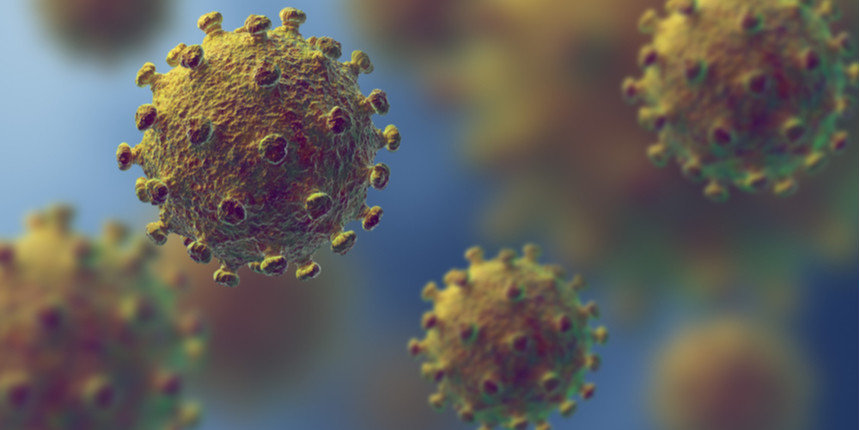IIT Jodhpur study shows COVID-19 may attack brain and nervous system
Team Careers360 | April 27, 2020 | 12:06 PM IST | 2 mins read

NEW DELHI: A research study conducted by Indian Institute of Technology Jodhpur (IIT Jodhpur) highlights that the loss of smell and taste of coronavirus-infected patients makes their brain and entire central nervous system (CNS) more vulnerable to viral infections and may have devastating effects.
The team of researchers at IIT Jodhpur have “explored the neuroinvasive nature of SARS-CoV-2, the virus that causes the COVID-19 disease” in their study.
One of the researchers, Surajit Ghosh, has said that SARS-CoV-2 is known to interact with a specific human receptor, hACE2 (human angiotensin-converting enzyme-2). “This receptor happens to be the entry point of the virus,” Ghosh said.
The hACE2 receptor is present in most human organs like the nose, lungs and brain.
The researchers have attributed “the loss of smell or taste to the fact that nose and mouth both are very important entry points of the virus.”
The study indicates that the virus enters the human body through nose or mouth and then makes its way up the olfactory bulb which is chiefly responsible for the sense of smell. The olfactory bulb is located in the forebrain and this may expose the CNS to viral infection.
“This explains the loss of smell associated with many asymptomatic carriers of COVID-19,” highlights the research paper.
Strategies to combat COVID-19
Based on the understanding of the neurological manifestations of the infection, the IIT team has suggested probable therapeutic strategies that can be adopted to combat COVID-19. These strategies involve curbing the interaction between the viral protein and the human receptor or strategically designing small molecule inhibitors to inhibit the interaction between the viral protein and human receptor.
The paper on these research findings by the IIT team has been accepted in ACS Chemical Neuroscience journal and supported by the Science and Engineering Research Board (SERB).
The paper also suggests “the development of subunit vaccines from the purified virus along with antibody-based drugs.”
The paper recounts another study which showed that the brain may get infected by the virus through the olfactory bulbs and also through other peripheral nerve terminals or simply blood circulation and the virus may then attack the CNS. The scientists said “it may also completely destroy the medulla oblongata of the hindbrain, which regulates breathing, heart, and blood vessel function”.
The research paper has warned the asymptomatic coronavirus carriers to self-quarantine themselves as soon as they feel such symptoms as loss of smell and loss of taste and consult specialized nephrologists (kidney specialists) before they turn into carriers.
Ashutosh Sharma, secretary, department of science & technology (DST), said: "The pathway of infection of SARS-CoV-2 and its impact on various organs is an important area that would also help with the future rational approaches for therapy. The neuro-invasive nature of the virus and its effects on the senses of smell and taste are thus interesting and useful areas of investigation."
The paper has also suggested autopsies of COVID-19 infected patients and analysis of their cerebrospinal fluid.
The study also indicates that activities like smoking can increase the risks of contracting COVID-19 infection.
Also read:
- IIT Bombay, NIT Srinagar, IUST students develop low-cost ventilator
- Coronavirus (COVID-19) Outbreak: Latest Updates
Write to us at news@careers360.com.
Follow us for the latest education news on colleges and universities, admission, courses, exams, research, education policies, study abroad and more..
To get in touch, write to us at news@careers360.com.